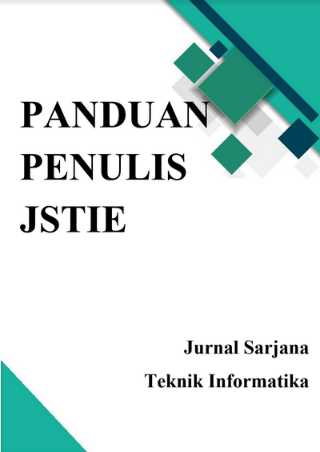PENGEMBANGAN APLIKASI POS MIKRO BERBASIS MOBILE ANDROID UNTUK BISNIS WARALABA
DOI:
https://doi.org/10.12928/jstie.v5i1.10805Abstract
Usaha Mikro Kecil dan Menengah (UMKM) merupakan tulang punggung perekonomian bangsa. Di Indonesia terdapat sekitar 57,9 juta pelaku UMKM. Usaha mikro cukup mendominasi, ada sekitar 22 juta pedagang kaki lima (PKL) dengan 2,5 juta di antaranya adalah pedagang bakso. Dalam menjalankan usahanya UMKM tidak hanya secara individu atau personal, melainkan juga mengemasnya dalam bentuk waralaba. Pengelolaan bisnis yang baik dan profesional menjadi harapan setiap pelaku UMKM.
Point of sale (POS) merupakan sebuah sistem yang terdiri dari hardware dan software yang didesain sesuai dengan keperluan dan dapat diintegrasikan dengan beberapa alat pendukung agar dapat membantu mempercepat proses transaksi.
Tujuan penelitian ini adalah mengembangkan Aplikasi POS Mikro berbasis mobile Android untuk bisnis waralaba. Aplikasi ini di harapkan dapat mempermudah kasir dalam pelayanan transaksi dan pembuatan laporan serta mempermudah pemilik bisnis waralaba dalam mengelola bisnis mereka.
Dalam pengembangkan aplikasi POS Mikro Penelitian ini akan menggunakan metodologi pengembangan perangkat lunak Agile dengan kerangka kerja Scrum. Sebagaimana yang berlaku dalam System Development Life Cycle (SDLC), maka penelitian ini akan menerapkan siklus Agile SDLC yang mengkombinasikan model proses iteratif dan inkremental dalam pengembangan sistemnya.
Kata Kunci: Point Of Sale, Android, Waralaba, UMKM.
References
Hendry, 2010. Membangun Aplikasi Point Of Sale dengan vb 6.0, Mysql dan php. Jakarta, PT. Elex Media Komputindo
Djatikusuma, Edin Surdi, Dan Novita, 2008. Perancangan Sistem Informasi Point Of Sale (Pos) Pada PD Tokyo, Jurusan Sistem Informasi, STMIK GI MDP Palembang
Kosasi, Sandy, 2014. Perancangan Aplikasi Point of Sale Dengan Arsitektur Client/server Berbasis Linux dan Windows, Studi Sistem Informasi, STMIK Pontianak
Ambler, Scott W and Lines, Mark, 2012. Disciplined Agile Delivery, IBM
Wahana, 2013. Step By Step Menjadi Programmer Android, Yogyakarta, Andi Publisher
Agus Sucista, 2012. Pembangunan Sistem Aplikasi Layanan Berbasis Lokasi Pencarian ATM Dan Pom Bensin Terdekat Berbasis Android, Penelitian, Manajemen Informatika Dan Komputer(AMIKOM), Yogyakarta
Sarna, D.E.Y., 2010. Implementing and Developing Cloud Computing Applications. New York: CRC Press. Tersedia di: http://ca.chitkara.edu.in/cloudsecurity/r-iadcc.pdf.
Downloads
Published
Issue
Section
License
License and Copyright Agreement
In submitting the manuscript to the journal, the authors certify that:
- They are authorized by their co-authors to enter into these arrangements.
- The work described has not been formally published before, except in the form of an abstract or as part of a published lecture, review, thesis, or overlay journal. Please also carefully read Journal Posting Your Article Policy.
- The work is not under consideration for publication elsewhere.
- The work has been approved by all the author(s) and by the responsible authorities – tacitly or explicitly – of the institutes where the work has been carried out.
- They secure the right to reproduce any material that has already been published or copyrighted elsewhere.
- They agree to the following license and copyright agreement.
Copyright
Authors who publish with Jurnal Sarjana Teknik Informatika agree to the following terms:
- Authors retain copyright and grant the journal right of first publication with the work simultaneously licensed under a Creative Commons Attribution License (CC BY-SA 4.0) that allows others to share the work with an acknowledgement of the work's authorship and initial publication in this journal.
- Authors are able to enter into separate, additional contractual arrangements for the non-exclusive distribution of the journal's published version of the work (e.g., post it to an institutional repository or publish it in a book), with an acknowledgement of its initial publication in this journal.
- Authors are permitted and encouraged to post their work online (e.g., in institutional repositories or on their website) prior to and during the submission process, as it can lead to productive exchanges, as well as earlier and greater citation of published work.







